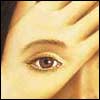With the proliferation of augmented reality (AR) headsets, which overlay digital information, like images or text, displayed in real-time on a screen (sometimes called mixed reality) or projected onto your eyes or clear glasses, augmenting the real world in front of you, we begin to question what constitutes vision.
Now you may be wondering why this question even matters at all.
Well, certain Jewish laws require that we actually see something. Eyewitnesses are required in order to give valid testimony.
As well, there are certain blessings we make on natural phenomena (like rainbows or oceans), or upon seeing a king. In all these cases, we actually have to see them.
Seeing Through Glasses or Mirrors
So, what is considered “seeing”? Before discussing augmented reality glasses and headsets, let’s begin with simpler examples like regular glasses or mirrors.
Generally, seeing through glasses is considered “seeing” in halachah.1
Mirrors, however, raise different issues. In Halachot Ketanot, Rabbi Yaacov Chagiz (1620–1674) questions whether witnessing a crime via a mirror qualifies as valid testimony. Citing the Talmud on sanctifying the new moon, he notes that testimony based on the moon’s reflection in water is invalid, leading him to conclude that reflections are not halachic “seeing.”2
Others suggest this disqualification is due to the potential distortion of reflections, especially with faint images like the new moon. For something clearer, like the fuller moon in Kiddush Levanah, a reflection might suffice—though even then, it’s advised not to rely on it. This implies that the concern may not be the medium itself (e.g., a mirror) but the risk of distortion. Thus, if a reflection or video is clear and tamper-free, it might be accepted as valid testimony.3
Some opinions suggest that indirect seeing could perhaps suffice when witnesses only need to confirm that an event occurred.4 However, all agree that this does not apply when witnesses are integral to the halachic act, such as witnesses at a wedding, where their presence is essential to accomplishing the marriage.5 Moreover, the majority view holds that indirect seeing through mirrors or live streams is not considered true "seeing," even for basic testimony.6
It follows that viewing something via live stream or augmented reality (or through any other technology which impedes your direct vision) is not considered “seeing” according to halachah. So you would seemingly not recite blessings for natural phenomena if viewed only through augmented reality glasses.
If, however, you are seeing through “regular” glasses, but it overlays parts of your vision with text or visuals, then it may depend on the extent of the manipulation as well as how it is being used (e.g. for giving testimony it may still be problematic).
Experiencing Royalty
However, there may be an exception regarding the blessing for seeing a king.
The Talmud7 recounts that once Rav Sheshet, although blind, went with the crowd to greet the king. A heretic mocked him, questioning why a blind man would bother. Rav Sheshet responded confidently, saying he knew more than the heretic. As each troop passed, Rav Sheshet insisted—despite the heretic’s attempts to trick him—that the king had not yet arrived. Finally, in a moment of silence, Rav Sheshet declared the king’s arrival, explaining that true royalty, like G‑d’s presence, is sensed in quiet. When Rav Sheshet blessed the king, the heretic mocked him for blessing someone he couldn’t see. In the end, the heretic was punished.
Based on this story, the halachah is that you need not physically see the king if you can genuinely perceive his presence. Thus, viewing a live king through augmented reality might allow you to recite the blessing if you can sense his presence. The same would hold true regarding the blessings on the other phenomena since, ultimately, the blessing isn't recited due to the satisfaction of “seeing.” Rather, these blessings are meant to serve as a medium to praise G‑d.8 Generally, though, seeing through augmented reality headsets or similar devices is not considered true “seeing” in halachah.







Start a Discussion